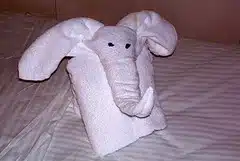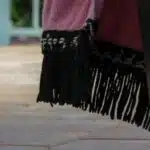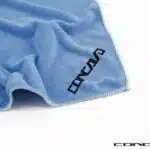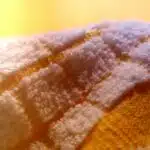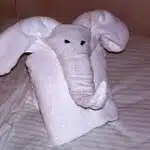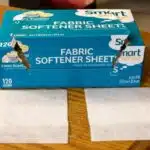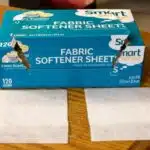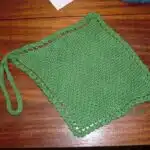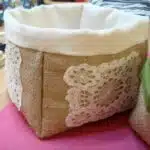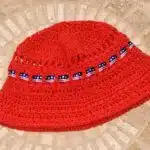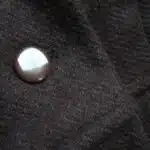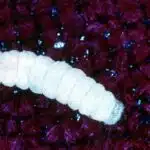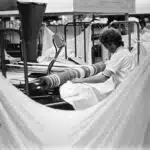As a textile expert, I have encountered many customers who complain about the stiffness and roughness of their towels. It is not uncommon for people to purchase new towels only to find that they are too stiff and uncomfortable to use. This can be frustrating, especially when you have spent money on high-quality towels.
The good news is that there are several ways to soften your towels and make them more comfortable. In this article, we will explore some of the most effective methods for softening towels, including using vinegar, baking soda, fabric softener, dryer balls, and more. Whether you are looking to improve the feel of your own towels or seeking advice to serve others in your hospitality business, these tips will help you achieve the softness and comfort you desire.
The Importance Of Soft Towels
Soft towels are a luxurious commodity that can be found in many households. The benefits of soft towels extend beyond just the pleasure of their touch. Softness enhances the absorbency of towels, allowing them to dry surfaces more quickly and efficiently, making them an essential item for bathrooms and kitchens. Additionally, soft towels provide a gentle feel on the skin, resulting in a more comfortable and refreshing experience after a shower or bath.
Improving towel longevity is another benefit of having soft towels. A softer texture reduces friction between fibers during washing and drying cycles, which can lead to less wear and tear over time. This translates into fewer tears or holes in your towels, resulting in a longer lifespan for these essential household items.
Incorporating softness into your towels is not only beneficial but also achievable with proper care techniques. Understanding towel fabric types is crucial to choosing the right laundry approach to keep them feeling plush and soft. By implementing simple tips for maintaining their quality, you can enjoy soft and cozy towels for years to come.
Understanding Towel Fabric And Types
Towel Fabric Types
Understanding the different types of towel fabric is crucial in choosing the right towel for your personal needs. The most common types of towel fabrics include cotton, microfiber, bamboo, and linen. Cotton towels are popular due to their absorbency and durability. Microfiber towels are known for their softness and quick-drying capabilities. Bamboo towels are eco-friendly and hypoallergenic, while linen towels are lightweight and ideal for travel.
When buying soft towels, it’s important to pay attention to the fabric weight and thread count. Higher thread counts typically result in softer towels, while heavier weights provide more absorbency. Look for towels made with long-staple cotton fibers, as they tend to be softer and more durable than shorter fibers.
In addition to fabric type and weight, consider the finishing process used on the towels. Some manufacturers use a chemical softener that can make the towels feel plush but may not be good for sensitive skin or the environment. Opt for naturally softened towels or try using white vinegar during the wash cycle to achieve a similar effect without harmful chemicals.
Transition: Now that we have a better understanding of towel fabrics and what to look for when buying soft towels, let’s discuss how proper washing can help maintain their softness over time.
Washing Towels Properly
- The choice of detergent is important to ensure effective cleaning and to reduce residue build up on towels.
- Using warm water instead of hot, helps to reduce any shrinkage of the fabric.
- It is best to avoid chlorine bleach when washing towels as this can weaken the fibers and cause color fading.
- The use of fabric softeners or vinegar in the rinse cycle can help to soften towels and reduce static cling.
- To prevent possible damage, it is important to avoid overloading the washing machine.
- After washing, towels should be dried on a cool setting as high temperatures can cause further shrinkage.
Detergent Choice
When it comes to washing towels, the choice of detergent plays a crucial role in determining their softness. Not all detergents are created equal, and some may leave behind chemical residues that make the towels rough and stiff. For a more environmentally friendly option, consider using green detergents that do not contain harsh chemicals.
Another alternative is to use a homemade detergent recipe that is gentle on fabrics and does not contain any synthetic additives. Homemade detergents typically consist of natural ingredients such as borax, washing soda, and castile soap. These ingredients work together to clean the towels while also helping to maintain their softness.
Before choosing a detergent, it is important to read the label carefully and avoid those that contain bleach or fabric softeners. While these additives may seem like a quick fix for softer towels, they can actually damage the fibers over time and ultimately make them less absorbent. By carefully selecting a detergent that is gentle yet effective, you can ensure that your towels stay soft and fluffy wash after wash.
Washing Temperature
Properly washing towels is essential to maintain their quality and prolong their lifespan. Aside from choosing the right detergent, another crucial factor to consider is the washing temperature. High heat settings may seem like a quick way to sanitize and clean towels thoroughly, but they can actually cause more harm than good.
Lowering the washing temperature is recommended to prevent high heat damage that can break down towel fibers and cause them to lose their softness and absorbency over time. Most towels are made of cotton, which is a delicate material that requires gentle cleaning. Hot water can cause the cotton fibers to shrink and weaken, resulting in rough and scratchy towels.
To ensure that your towels remain soft and fluffy wash after wash, it is best to stick with lower temperature settings. Many modern washers have settings specifically designed for cotton fabrics that use cooler temperatures while still providing a thorough clean. By using these settings, you can avoid damaging your towels while keeping them fresh and clean.
In conclusion, lowering the washing temperature is an important step in properly caring for your towels. It helps prevent high heat damage that can cause them to lose their softness and absorbency over time. By selecting cooler temperature settings specifically designed for cotton fabrics, you can keep your towels looking and feeling like new for longer.
Drying Method
Properly washing towels is crucial in maintaining their quality and prolonging their lifespan. But after washing, the drying method used is just as important. Towels are known for their absorbency, and the drying process can make or break this feature. One of the best ways to dry towels is through air-drying. Hang your towels outside on a clothesline or indoors on a drying rack to let them naturally dry with air circulation.
Air-drying helps keep towels fluffy and soft while preserving their absorbency. It also avoids any heat damage that can weaken towel fibers and cause shrinkage. If you do need to use a dryer, it’s essential to avoid high heat settings that can cause damage even when using lower temperature settings.
If you prefer using a dryer, tumble dry your towels on low heat and remove them promptly once they’re dry. Allow your towels to cool down outside before folding them or storing them away. Avoid ironing your towels as this can also lead to heat damage that will affect the towel’s overall quality. By following these simple tips, you can ensure that your towels remain soft, fluffy, and absorbent wash after wash without losing their quality over time.
Drying Towels Effectively
After washing towels, the next step is to dry them effectively to ensure they remain soft and absorbent. Air-drying is one of the best methods for drying towels since it does not involve any heat, which can damage the fibers and cause them to become stiff. To air-dry towels, simply hang them outside on a clothesline or indoors on a drying rack. It’s important to avoid direct sunlight as this can cause fading and discoloration.
Towel fluffing is another effective technique for ensuring that towels remain soft after washing and drying. This involves shaking out the towel vigorously before placing it in the dryer or hanging it up to air-dry. Fluffing helps to loosen any trapped fibers and ensures that the towel remains fluffy and absorbent. Additionally, adding dryer balls or tennis balls to the dryer can help to further fluff up towels while also reducing static cling.
To keep your towels soft and fluffy over time, it’s important to take proper care of them during both washing and drying. Avoid harsh detergents or fabric softeners that can leave behind residue, which can make towels stiff and less absorbent over time. Instead, opt for gentle detergents that are specifically designed for use with towels. Additionally, avoid overloading your dryer as this can prevent towels from properly fluffing up during drying.
Using vinegar to soften towels is a natural alternative to fabric softeners that works well for those with sensitive skin or allergies. Vinegar helps to remove any buildup of detergent or fabric softener residue on the fibers of the towel, which can make them feel stiff and scratchy. To use vinegar as a fabric softener, simply add one cup of white vinegar to the rinse cycle when washing your towels.
Using Vinegar To Soften Towels
Adding vinegar to laundry cycles has been found to be effective in softening towels and other fabrics. The acidic nature of vinegar helps to break down the fibers in the fabric, resulting in soft towels. The benefits of using vinegar to soften towels is that it is an all-natural and cost effective alternative to the use of chemical fabric softeners. Additionally, it has been found to be effective in reducing static cling and improving the absorbency of the towels.
Add Vinegar To Laundry
Do you want to know the secret to softening your towels without using harsh chemicals? Look no further than your kitchen cabinet for a simple and natural solution: vinegar. As a textile expert, I can attest to the benefits of vinegar as an effective fabric softener.
Adding vinegar to your laundry not only softens towels but also helps to remove any lingering odors or residue from previous washes. The acidity in vinegar helps to break down any buildup on the fibers, resulting in softer and fluffier towels. Additionally, using vinegar as a fabric softener is an eco-friendly alternative to traditional chemical-based products.
The benefits of vinegar extend beyond just softening towels. Its versatility makes it useful for a variety of household tasks such as cleaning, deodorizing, and even gardening. So next time you’re looking for an alternative use for vinegar, consider adding it to your laundry routine for softer and fresher-smelling towels.
Benefits Of Vinegar Softening
Moving on from discussing the effectiveness of vinegar in softening towels, let’s delve into its benefits for fabric softening. One of the primary benefits of using vinegar as a fabric softener is that it is an eco-friendly alternative to traditional chemical-based products. Unlike commercial fabric softeners, which often contain harmful ingredients such as phthalates and synthetic fragrances, vinegar is a natural and non-toxic solution that poses no risk to human health or the environment.
Another benefit of using vinegar as a fabric softener is that it helps to remove any lingering odors or residue from previous washes. This is particularly useful for towels that tend to accumulate musty smells over time. The acidity in vinegar helps to break down any buildup on the fibers, resulting in softer and fresher-smelling towels.
While there are many benefits to using vinegar for fabric softening, there are also some drawbacks to consider. For instance, some people may not like the smell of vinegar and may prefer the scent of commercial fabric softeners. Additionally, vinegar may not be suitable for all types of fabrics and could potentially damage delicate items such as silk or wool. Overall, it’s important to weigh the pros and cons before deciding whether or not to use vinegar as a fabric softener for your towels.
In comparison with commercial fabric softeners, vinegar has proven to be an effective and more sustainable option for softening towels. By incorporating this natural ingredient into your laundry routine, you can enjoy softer, fresher-smelling towels while also reducing your impact on the environment. As textile experts, we highly recommend giving this simple yet effective method a try!
Utilizing Baking Soda For Softer Towels
Having explored the benefits of using vinegar to soften towels, let us now delve into another household item that can provide the same effect. Baking soda is not only a versatile ingredient in cooking, but it also has several benefits for laundry. It is particularly useful for those who prefer a natural alternative to commercial fabric softeners.
Baking soda acts as a natural water softener, which means it can break down mineral deposits on towels that make them feel stiff and scratchy. Additionally, baking soda helps to remove odors from towels, leaving them smelling fresh and clean. To use baking soda as a fabric softener, simply add half a cup of it to the rinse cycle of your washing machine.
Another option for those who want to avoid commercial fabric softeners is making homemade fabric softener. This method involves mixing ingredients such as vinegar, baking soda, and essential oils to create a solution that effectively softens towels without any harmful chemicals. Not only does this help save money in the long run, but it also gives you control over what goes into your laundry.
Incorporating baking soda or homemade fabric softener into your laundry routine is an easy way to achieve softer and fresher-smelling towels. By choosing natural alternatives over chemical-laden products, not only are you doing yourself a favor but also contributing positively to the environment by reducing the amount of harmful chemicals released into waterways. Next up, we will explore how adding fabric softener directly into your wash can further enhance the softness of your towels.
Adding Fabric Softener To Your Wash
Fabric softeners are an effective way to soften towels and make them feel fluffy, comfortable, and more absorbent. However, before you start using fabric softeners in your laundry routine, it is important to know the pros and cons associated with them. Some people may have allergies or sensitivities to the chemicals found in fabric softeners. Additionally, some brands of fabric softeners contain harmful chemicals that can cause environmental pollution.
If you decide to use a fabric softener, there are eco-friendly options available that use natural ingredients such as essential oils or plant-based ingredients. These eco-friendly options are not only better for the environment but also for your health. They do not contain any harsh chemicals that can irritate your skin or cause respiratory problems.
When adding fabric softener to your wash, it is important to follow the manufacturer’s instructions carefully. Using too much can leave behind a residue on your towels that will reduce their absorbency and make them less effective at drying you off. On the other hand, using too little may not provide the desired level of softness.
- Use an eco-friendly fabric softener made from natural ingredients.
- Follow the manufacturer’s instructions when adding fabric softener to your wash.
- Avoid using too much or too little fabric softener to achieve optimal results.
In summary, adding fabric softener to your wash can be a great way to soften towels and make them more comfortable and absorbent. However, it is important to consider the pros and cons associated with different types of fabric softeners before making a decision. By choosing an eco-friendly option and following instructions carefully, you can achieve optimal results without any negative impact on your health or the environment. In the next section, we will discuss how choosing the right dryer balls can also help soften towels while reducing environmental impact.
Choosing The Right Dryer Balls
Dryer balls are available in two primary materials: natural wool and plastic. Wool dryer balls are able to reduce drying time, decrease wrinkles, and reduce static cling, whereas plastic dryer balls are not as effective in softening fabrics. The use of dryer balls has been shown to improve the softness of towels, reduce the need for fabric softener, and reduce the amount of time needed to dry a load of laundry. Additionally, dryer balls can help to reduce the amount of noise and vibration associated with the drying process.
Types Of Dryer Balls
When it comes to softening towels, choosing the right dryer balls can make all the difference. One of the first factors to consider is whether you want reusable or disposable options. Reusable dryer balls are more eco-friendly and cost-effective in the long run, but disposable options may be more convenient for those who don’t want to deal with washing and reusing them.
Another important factor to consider is the eco-friendliness of your chosen dryer balls. Look for options made from sustainable materials such as wool or bamboo, which have a lower impact on the environment than synthetic materials. Additionally, some brands even offer compostable options that can be disposed of in an environmentally friendly way after they’ve served their purpose.
Ultimately, choosing the right type of dryer ball for softening towels comes down to personal preference and values. Whether you opt for reusable or disposable, eco-friendly or not, what matters most is finding a solution that works best for you while also minimizing your impact on the environment. Keep these factors in mind when making your choice and enjoy luxuriously soft towels every time you dry them!
Benefits Of Using Dryer Balls
Dryer balls are an essential tool for softening towels and other laundry items. When choosing the right dryer balls, it is important to consider the benefits that they offer. One of the biggest advantages of using dryer balls is their cost-effectiveness. While they may have a higher upfront cost than traditional fabric softeners, they can be reused many times, making them more economical in the long run.
Another benefit of using dryer balls is that they can help reduce drying time. This not only saves energy and money but also helps prolong the life of your towels by reducing the amount of time they spend in the dryer. Additionally, dryer balls can help prevent static cling, which is a common problem with synthetic materials.
Lastly, using dryer balls can be a more environmentally friendly option compared to traditional fabric softeners. They do not contain harsh chemicals that can harm the environment and are available in eco-friendly options made from sustainable materials such as wool or bamboo. By choosing these options, you can minimize your impact on the environment while still enjoying luxuriously soft towels every time you dry them.
In conclusion, choosing the right type of dryer ball for softening towels involves considering various factors such as cost-effectiveness, eco-friendliness, and benefits such as reduced drying time and preventing static cling. By selecting reusable or disposable options made from sustainable materials, you can enjoy all these benefits while minimizing your impact on the environment. So go ahead and choose wisely to achieve softer and more comfortable towels!
Trying Wool Dryer Balls
Once upon a time, people used to hang their clothes outside to dry in the sun and wind. However, as technology advanced, people started using laundry dryers to save time and energy. Though convenient, using a dryer can make towels stiff and rough. Luckily, there are ways to soften towels without having to sacrifice the convenience of a dryer.
One alternative option is using wool dryer balls. Wool dryer balls are made from natural fibers that help create space between the towels in the dryer, allowing them to fluff up and become softer. Adding essential oils onto the wool dryer balls can also give your towels a fresh scent without having to use chemical-laden fabric softeners.
However, if you have allergies or prefer not to use animal products, there are alternatives to wool dryer balls such as reusable plastic or silicone dryer balls. While not as effective as wool in creating space between towels for fluffing, they still help reduce drying time and prevent static cling. Adding a few drops of essential oils onto these alternative dryer balls can also provide a fresh scent during the drying process.
For those who prefer an even cheaper alternative than wool or plastic/silicone dryer balls, using tennis balls is an option. Tennis balls work similarly by creating space between towels for fluffing and reducing drying time. However, it’s important to note that tennis balls may be noisier in the drying cycle compared to wool or plastic/silicone alternatives.
Using Tennis Balls As An Alternative
As we explored in the previous section, wool dryer balls can be an effective tool to soften towels without the use of fabric softeners. However, for those who are looking for a more eco-friendly and affordable option, tennis ball substitutes can also be a great alternative.
Tennis balls have long been used by professional athletes to improve their game, but they can also serve as an excellent substitute for dryer balls. They work by bouncing around in the dryer, separating and fluffing up towels while absorbing moisture. This results in softer and fluffier towels without any negative impact on the environment.
For those concerned about using tennis balls due to potential toxins or allergies, there are other eco-friendly options available such as reusable dryer sheets made from natural materials like wool or bamboo. These alternatives are not only better for the environment but also provide a safer option for those with sensitive skin or respiratory issues. By choosing these alternatives over traditional fabric softeners, we can take a small step towards reducing our carbon footprint while still achieving the desired result of softer towels.
Transitioning into our next topic, it’s important to note that hanging your towels to dry is another effective way to soften them naturally and reduce wear and tear from excessive machine drying. By allowing your towels to air dry on a clothesline or drying rack, you can prolong their lifespan while also saving energy. So whether you choose tennis ball substitutes or hang your towels out to dry, there are plenty of ways to achieve softer and more sustainable laundry habits.
Hanging Your Towels To Dry
After washing your towels, it is important to hang them up in a way that promotes quick drying. This not only helps prevent mildew and musty odors but also prolongs the life of your towels. One technique is to use towel bars or hooks that allow for proper air circulation around the towel. Avoid folding towels over the bar as this can create overlapping layers that slow down drying time.
Another creative way to display and dry your towels is by using a ladder-style towel rack. Not only does this add a stylish touch to your bathroom, but it also allows for more space between towels for better airflow. You can also experiment with different ways of draping your towels over the rungs, such as twisting them or folding them in thirds.
By following these quick drying techniques and creative towel display ideas, you can keep your towels soft and fresh without resorting to fabric softeners that can lead to build-up over time. In the next section, we will discuss how to avoid fabric softener build-up and maintain the quality of your towels.
Avoiding Fabric Softener Build-Up
After hanging your towels to dry, it’s important to keep them soft and fluffy. Nobody wants to use rough, scratchy towels that feel like sandpaper on their skin. Softening your towels can be achieved in a number of ways, but many people turn to fabric softeners for the job. Unfortunately, this can lead to residue buildup over time.
Preventing residue buildup is crucial when it comes to keeping your towels soft and absorbent. Fabric softener can leave behind a waxy coating that not only reduces absorbency but also collects dirt and bacteria. Instead of relying on chemical-laden products, try natural alternatives such as vinegar or baking soda. Simply add a cup of white vinegar or half a cup of baking soda to the wash cycle with your towels and enjoy softer, fresher-smelling results.
In addition to natural alternatives, there are other steps you can take to ensure your towels stay soft and fluffy. First, avoid overloading the washing machine as this can prevent adequate rinsing and lead to residue buildup. Second, don’t use too much detergent as excess soap can also contribute to stiff towels. Thirdly, consider using dryer balls instead of fabric softener sheets in the dryer cycle for even more natural softening power without any harmful chemicals involved.
Using Dryer Sheets With Caution
Dryer sheets are a common fabric softener used in laundry. They work by coating the fabric fibers with a layer of chemicals that makes them feel softer and reduces static cling. However, while dryer sheets have their benefits, they also have some drawbacks.
One of the pros of using dryer sheets is that they are easy to use. Simply toss one or two into the dryer with your towels and let them do their job. Additionally, they can be found at most grocery stores and are relatively affordable. Some people even enjoy the scent that comes from using dryer sheets.
On the other hand, there are also cons to using dryer sheets. The chemicals in these products can cause skin irritation for some individuals, particularly those with sensitive skin. Furthermore, they can leave a residue on towels over time, which may prevent them from absorbing water effectively. It’s also worth noting that dryer sheets contribute to waste since they are single-use items.
Fortunately, there are alternatives to using dryer sheets if you want to soften your towels without exposing yourself to chemicals or contributing to waste. One option is adding a half cup of white vinegar to the rinse cycle instead of using a fabric softener. Another alternative is using wool balls in the dryer, which help fluff up towels and reduce static cling without leaving behind any residue.
With caution in mind when it comes to using dryer sheets on your towels, there are still ways you can achieve softness without compromising your health or contributing to waste accumulation. In the following section, we will discuss how storing your towels properly can also make a significant difference in their texture and overall quality.
Storing Your Towels Properly
Using dryer sheets with caution is important for maintaining the quality and longevity of your towels. However, there are other ways to soften them as well. In this section, we will discuss how to soften towels without the use of dryer sheets.
One way to soften towels is by using vinegar. Add half a cup of white vinegar to the rinse cycle when washing your towels. This will help break down any residue left on the fibers, making them feel softer. Another option is to add a cup of baking soda to the wash cycle along with your detergent. Baking soda helps neutralize any odors and can also help soften the fibers.
Rolling vs folding may seem like a trivial decision, but it can actually impact how soft and fluffy your towels feel. Rolling your towels instead of folding them helps prevent creases from forming, which can cause stiffness in the fibers over time. Additionally, proper linen closet organization can help keep your towels from getting compressed or overcrowded, which can also lead to stiffness.
Incorporate these tips into your towel care routine for softer, fluffier results. With proper care and maintenance, you can maintain softness over time and enjoy luxurious towels every day.
Maintaining Softness Over Time
Towel maintenance is essential to ensure their long-term softness. After all, towels are an everyday item that we rely on for our personal hygiene and comfort. Soft towels provide a luxurious feeling and a sense of indulgence, which enhances our bathing experience. To maintain the softness of your towels, you need to adopt proper towel care techniques.
Softening techniques are an effective way to maintain the softness of your towels over time. One such method is to use vinegar in your wash cycle instead of fabric conditioner. Vinegar acts as a natural fabric softener and helps remove any buildup of detergent or other products that may cause stiffness in the towel fibers. Another technique is to add baking soda, which has alkaline properties that help break down any mineral deposits in hard water, making it easier for the remaining detergent to rinse out.
Towel care also involves proper storage techniques. Always hang up your towels after each use instead of leaving them crumpled on the floor or in a pile. This will help prevent mildew growth and odor buildup while allowing air circulation around the fibers. Additionally, avoid using bleach or harsh detergents as they can break down the fibers and reduce their softness over time. By following these towel care tips, you can ensure your towels remain luxuriously soft for years to come without compromising their quality or lifespan.
Conclusion
Soft towels are a luxury that everyone deserves. Whether you are stepping out of the shower or wrapping yourself in a warm towel after a long day, nothing compares to the feeling of soft, fluffy fabric against your skin. However, achieving this level of softness requires proper care and attention. Understanding the fabric and types of towels, washing and drying techniques, and using natural methods such as vinegar can all help achieve softer towels.
It is important to remember that towels are not just functional items but also play a significant role in our daily lives. They provide comfort, warmth, and sometimes even a sense of security. By following these tips for softening your towels, you can enhance your overall bathing experience and bring more joy into your daily routine. Remember that with proper care and attention, your towels can remain soft and luxurious for years to come, providing you with the comforting embrace that you deserve every day.
Image Credits
- “Towel Elephant” by cm_e (featured)

